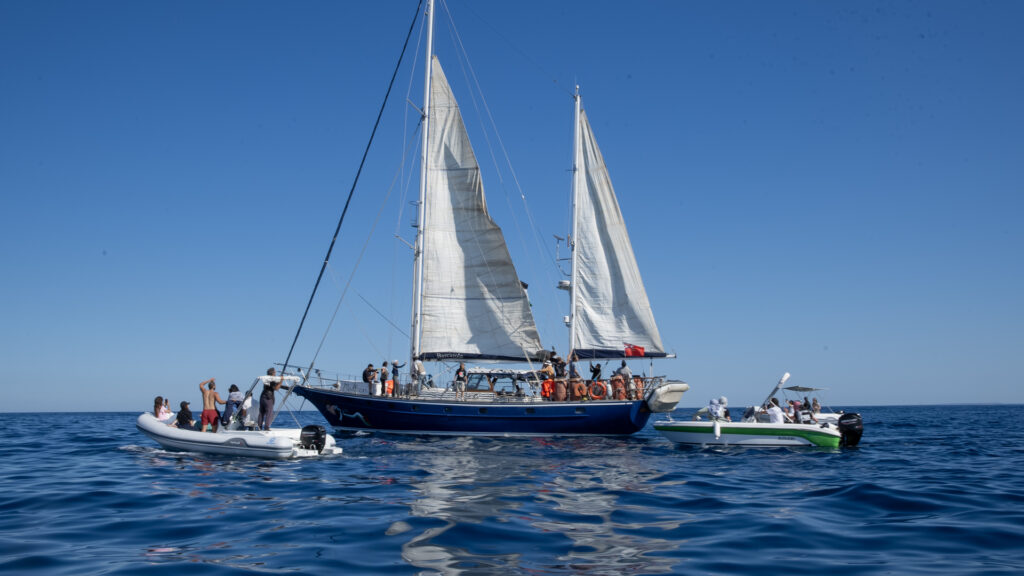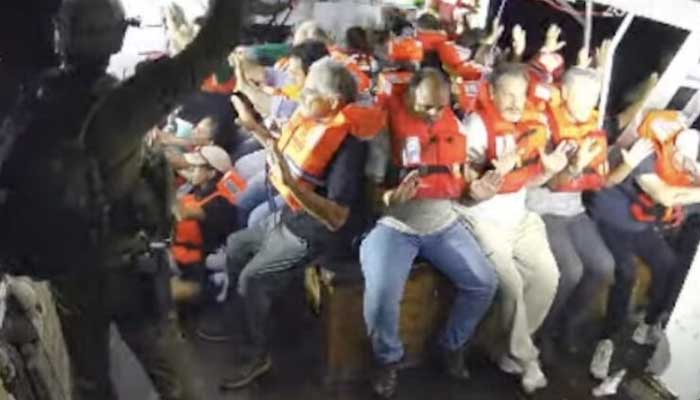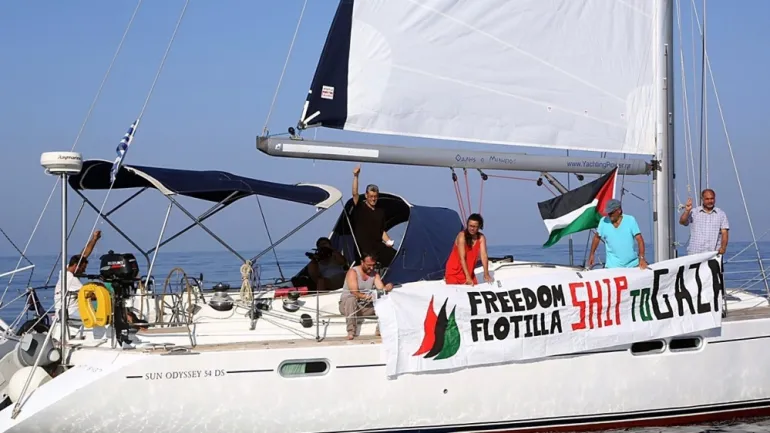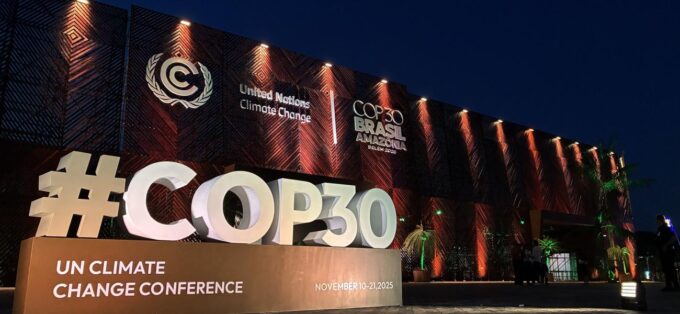TEL AVIV /GAZA – October 3, 2025
Israel has intercepted the final vessel of the pro-Palestinian “Global Sumud Flotilla” in the Mediterranean, ending a high-profile maritime campaign aimed at challenging the 18-year blockade of Gaza. The interception has triggered international criticism and renewed debate over the legality and humanitarian impact of Israel’s maritime restrictions.
The Marinette, the last of the flotilla’s vessels, was halted by the Israeli navy approximately 79 kilometres (42.5 nautical miles) off the coast of Gaza, according to flotilla organizers. The operation marked the conclusion of a week-long effort by Israel to prevent the entry of dozens of aid boats sailing from Europe under the flotilla banner.
The Israeli Defence Forces (IDF) confirmed the interception, stating that the vessel and its passengers were escorted to the port of Ashdod. Officials said the activists on board “did not comply with calls to divert” and were therefore boarded peacefully.
Hundreds Detained, Deportations Begin
The flotilla, consisting of more than 40 vessels at its peak, carried an estimated 450 international activists, including prominent figures such as Swedish climate activist Greta Thunberg and South African politician Mandla Mandela. All participants were detained after their vessels were intercepted earlier in the week.

On Friday, Israeli authorities began deporting those held. Four Italian nationals were among the first to be flown out, while dozens more are expected to be repatriated over the coming days. Israel’s interior ministry said all detainees were “in good health” and were being processed in accordance with immigration laws.
Organizers of the flotilla described their mission as “primarily symbolic,” aimed at drawing attention to the humanitarian crisis in Gaza and the ongoing blockade, which restricts the movement of goods and people into the territory.

“The Global Sumud Flotilla carried more than aid—it carried a message that the siege must end,” said flotilla spokesperson Zahra Hashemi in a statement. “Israel may have stopped our boats, but it cannot silence the voices of global solidarity.”
The Israeli government dismissed the flotilla as a “political provocation.” Energy and Infrastructure Minister Eli Cohen mocked the activists in a post on social media, calling their mission “a circus at sea.”
Legal and Diplomatic Questions
The operation has sparked controversy over international law. Critics argue that intercepting ships in international waters raises serious legal concerns, particularly regarding freedom of navigation and the prohibition of collective punishment under humanitarian law.
Several governments whose citizens were aboard the flotilla—including Italy, South Africa, and Sweden—have demanded clarifications from Israel. Human rights groups, including Amnesty International, condemned the interceptions as “unlawful and unjustifiable.”
Israel maintains that the blockade, first imposed in 2007 after Hamas took control of Gaza, is a legitimate security measure designed to prevent weapons smuggling and militant infiltration by sea.
Broader Implications
The interception of the flotilla underscores the continuing international scrutiny of Israel’s Gaza policies, particularly at a time when humanitarian conditions in the enclave remain dire. The United Nations has repeatedly warned that Gaza is on the brink of collapse, with shortages of food, medicine, fuel, and clean water exacerbated by the blockade and recent escalations.
“This was never about aid tonnage,” said Dr. Leila Hariri, a Middle East analyst based in London. “It was about symbolism, visibility, and forcing the world to look again at Gaza. In that sense, the flotilla has already succeeded, even if every boat was stopped.”
Observers say the flotilla’s failure to breach the blockade may embolden Israeli authorities but is unlikely to deter activists from mounting similar campaigns in the future.
For more exclusive insights into global politics and technology, visit us dailat www.whitehorsedaily.com











Leave a comment